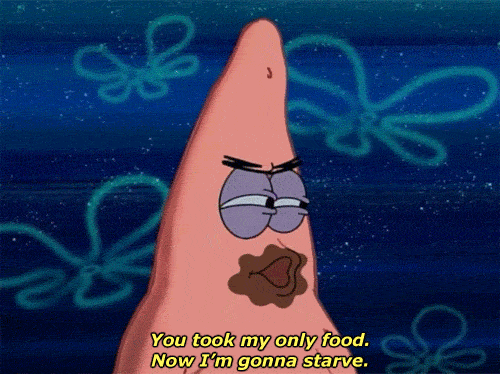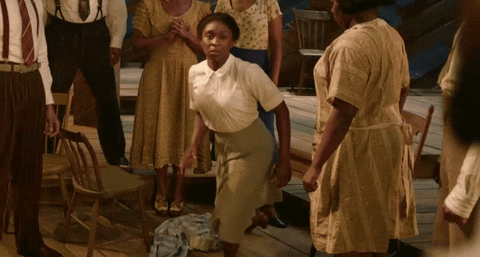Two Fat Girls Review The Documentary Fat-Topia.
Hey Brainiacs,
Follow Us On Instagram, Twitter, Facebook and Youtube: @barelybrainiacs!
Today we are going to talk about fat bodies, specifically fat bodies and Thin Privilege.
Now we know you guys have eyes and as you can see from our Instagram, we are not a size 2, 4, or 6.
We recently watched a documentary called Fat-topia that stirred up a lot of hate in the fat acceptance community. We would like to preface this review of the topics raised in the documentary by stating that we do not cosign with either side of the warring parties discussed in this film. We think both sides have their issues and we would like to have a calm conversation about the content of the documentary.
Fat-Topia is a 2019 documentary on the Fat Acceptance Movement by filmmaker Connor Luke Simpson. If you wish to watch it before you read this post or sometime in the future, it is available on Amazon Prime.
Some of you lovely brainiacs may be asking “What is the Fat Acceptance Movement?”
According to Wikipedia, the Fat Acceptance Movement (hereby mentioned as FAM) is “a social movement seeking to change anti-fat bias in social attitudes by raising awareness about obstacles faced by fat persons for the general public”.
All of that word vomit essentially means that the FAM is a group of people who are supposedly actively working to stop fat body discrimination .
Well, in theory, we should be first in line to join this counter culture movement but unfortunately for us, we don’t see much merit in it. But that will be discussed later.
Thin Privilege: Is that a real thing?
As previously mentioned, there are two basic schools of thought illustrated in the documentary. There are the FAM and the Fat-shamers. Fat-shamers are people who discriminate against or torment people who are perceived to be overweight, fat, or morbidly obese. Luckily for the people of the world, you can also be conventionally attractive and thin, and still get fat shamed. Fat is in the eye of the beholder but of course, mainly people who are overweight or fat are affected.
Members of the FAM claim that people with smaller bodies have “thin privilege”. Before we explain what that is, we would just like to say that all of these terms and who they are attributed to is so subjective. To one person we would have thin privilege and to others we could just be fat enough for our issues to be “valid” but we digress.
Thin privilege is supposed to be akin to White privilege. It’s the idea that non-obese or non-overweight presenting people have more options and opportunities in the world over people who are not fat. It’s astounding to us because you do not have to be thin to have thin privilege. For a better grasp on the concept, here are some examples from everydayfeminism.com.
Ex: Your size is probably not the first thing people notice about you
Ex: You can expect to find your clothing size sold locally.
And no cap, we can understand where the members of FAM are coming from using these two examples. It isn’t hard to sympathize with a group of people who can be marginalized and harassed for the way they look. It would be remiss for us, two black women, not to see where they’re coming from with these examples. We consider our bodies to be fat bodies. We don’t know if it’s the first thing people notice about us, but we don’t think it is and we can find clothing that fits in almost any store.
While we definitely understand and sympathize with fat struggles there are some things that you cannot expect to always have accommodations. For example, airline seats. It is for your safety that you have an extra seat and we do not believe it is unfair. We definitely think places need to build sturdier seats and stairs and have appropriate accommodations but it is unfair for individuals to expect a world that is built for thinner and average-sized people to automatically adjust to the increase of bigger bodies.
This is to say that we probably have Thin privilege. we can fit in seats on public transportation and planes. Nobody really avoids sitting next to us because of our weight. Typically they’re avoiding our skin color lol but that’s a different post for a different day. We do feel a similar anxiety about our bodies even though we have a so-called “Thin Privilege”. We believe that people should not be excluded from public activities, stripped of some of their rights, or constantly humiliated due to the way that their body functions or looks. Society is well aware that bigger people exist and that there should be fair options available for them in the world.
The FAM vs Medical Facts: Are all fat people unhealthy?
The short answer is no.
However, Reniece and I did study medicine as a function of our undergraduate major (BioMEDICAL Sciences) and one of the examples of Thin Privilege provided by everydayfeminism.com really got my blood boiling.
Ex: Your health insurance rates are not higher than everyone else’s.
Now, now friends, what we aren’t going to do is pretend that being overweight and morbidly obese isn’t a health risk. We also aren’t going to pretend that other factors and health risks can’t raise your health insurance rates. People with any type of health risks have to pay more than an average person without them because the RISK of them becoming unhealthy is greater than the average person. It's a numbers game that has nothing to do with people and everything to do with the bottom line.
For example, people who smoke will also have a higher insurance rate. Thin or fat. It doesn’t matter.
What are the positive connotations of being overweight ?
Because we are confusion.
We understand that there are harsh stereotypes but everyone has a harsh stereotypes attached to their bodies, race, or sexuality. We would really like to understand the positives of being obese because we can’t find them.
In the documentary, a FAM activist really said “Cancer researchers are fat-shamers.”
This is the most ridiculous statement of the entire movie. Research and science are facts and it is not to shame any one individual but to raise awareness to reduce the risk of disease.
We live in a very judgemental society ok. We acknowledge that. Having health risks doesn’t make you inherently unhealthy. But they do increase your chances of your health declining due to that specific risk.
Fat People are not a persecuted group.
One of our biggest issues with the Body Positivity movement was the mental gymnastics they were using to relate fatphobia to racism or homophobia. It’s completely ludicrous.
Racism and homophobia are issues that individuals continue to fight and protest about even though these communities are still being unjustly killed and persecuted. No one is persecuting fat individuals. Fat individuals increase their own risk of death. While we will admit that fat individuals face challenges, it is nothing compared to the struggles felt by minorities or the members of the LGBTQ community.
The word fat should definitely stick around because it is just a descriptor. We are sure thin people do not like being told they look like sticks or that they need to eat more. When you describe a black individual the first thing you describe them as is black. The word fat is just an adjective and it is not someone’s identity. Obesity comes with issues but it is completely possible to be overweight and healthy.
Because you’re fat doesn’t mean that you’re not active and don’t work out. We are in the gym pretty frequently, and at one point we were very fit but our bodies were still bigger than conventional standards. We’ve never had high blood pressure, high cholesterol, and our blood sugar has been perfect since the day we were born. But we are overweight. Yes, it is a health risk. Yes, it is something we have to monitor and counteract with other behaviors to ensure that we stay healthy. And no, it really isn’t anyone’s business.
People should NOT be involved in the health of strangers. We all have our right to have our opinions but the opinions of people who do not directly affect your life should not matter. As long as you have the correct information and knowingly make the choice to remain in the body of your choosing, it doesn’t matter.
For the fat-shamers and FMA dissenters, am we saying it’s ok for fat people to want to be fat?
Yes.
In our personal opinion, is it something that we would aspire to or would encourage people to aspire to be?
No, but that’s our opinion. We appreciate our bodies for working so hard for us but we know that there is another level of efficiency that we can achieve. We can be faster, stronger, and healthier if we dedicate ourselves to the fitness journey.
What are your thoughts?
We encourage all our readers to watch the documentary and share your thoughts with us! Are you apart of the Fat Acceptance Movement, are you against it, or are you like us and don’t agree with either side? We’d love to hear your opinion in the comments. Don’t be shy!
We’ve going to be tackling self-image and its social impact for the next few weeks. Be sure to follow us on social media @barelybrainiacs for updates or give us your opinion our blog posts. We’d love to hear from you so leave a comment below or reach out to us on social media!




